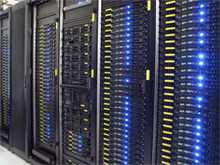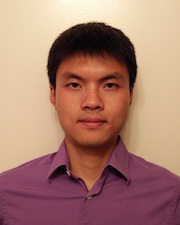Computing in the Biosciences
EECS researchers examine fundamental problems in biology and how principles and technologies of computing can be applied to life sciences. They advance computational methods and tools for applications in biological, biochemical, and medical fields. Interdisciplinary research in biosciences at KU includes modeling, analysis, data management, and algorithm optimization.

Program Objectives
- Understand basic concepts and fundamental problems in biology.
- Understand fundamental principles and technologies of computing in biosciences.
- Understand how to apply and adapt computational methods to address life sciences problems, particularly bioinformatics problems.
- Have the ability to effectively communicate to impact technological decisions.
Associated Faculty

Charles E. & Mary Jane Spahr Professor
agah@ku.edu
785-864-8821
http://people.eecs.ku.edu/~agah/
3018 Eaton Hall
agah@ku.edu
785-864-8821
http://people.eecs.ku.edu/~agah/
3018 Eaton Hall
Primary Research Interests
- Applied Artificial Intelligence
- Autonomous Mobile Robots

Professor Emeritus
jerzygb@ku.edu
785-864-4488
https://people.eecs.ku.edu/~jerzygb/index.html
3014 Eaton Hall
jerzygb@ku.edu
785-864-4488
https://people.eecs.ku.edu/~jerzygb/index.html
3014 Eaton Hall
Primary Research Interests
- Data mining
- Knowledge discovery
- Machine learning
- Expert systems
- Reasoning under uncertainty
- Rough set theory

Associate Professor Emeritus
jrmiller@ku.edu
785-864-7384
http://people.eecs.ku.edu/~miller/
2036 Eaton Hall
jrmiller@ku.edu
785-864-7384
http://people.eecs.ku.edu/~miller/
2036 Eaton Hall
Primary Research Interests
- Computer Graphics
- Visualization
- Geometric Modeling
- Technology in Education

Primary Research Interests
- High Performance Scientific Computing Algorithms
- Parallel Unstructured Mesh and Optimization Algorithms
- Model Order Reduction
- Computational Medicine
- Image Processing

Primary Research Interests
- Bioinformatics and Computational Biology
- Genomics
- Metagenomics
- Genetics
- Non-coding RNA
Associated Facilities
Artificial intelligence development tools and languages:
- Lisp, CLOS, CLIPS, Prolog, GBB, OPS, MEM-1
Computational clusters:
- Linux cluster with 64 dual processor 3.2 Ghz Xeon processors and 64 dual core 2.8 Ghz Xeon processors for a total of 384 processors 37 TB of on-line storage Reconfigurable floating-point gate arrays
Bioinformatics software including:
- ClustalW, Emboss GENSCAN, hmmer, Ncbi toolkit
Data mining tools:
- SNOB, Cobweb, ID3, C4.5, statistical analysis packages, LERS Genomics Unified Schema installation
Information retrieval and Web tools:
- KUIR Information Retrieval Library
- Parallel development tools including MPI, Pfortran, and PC
- Parallel GROMOS for molecular dynamics